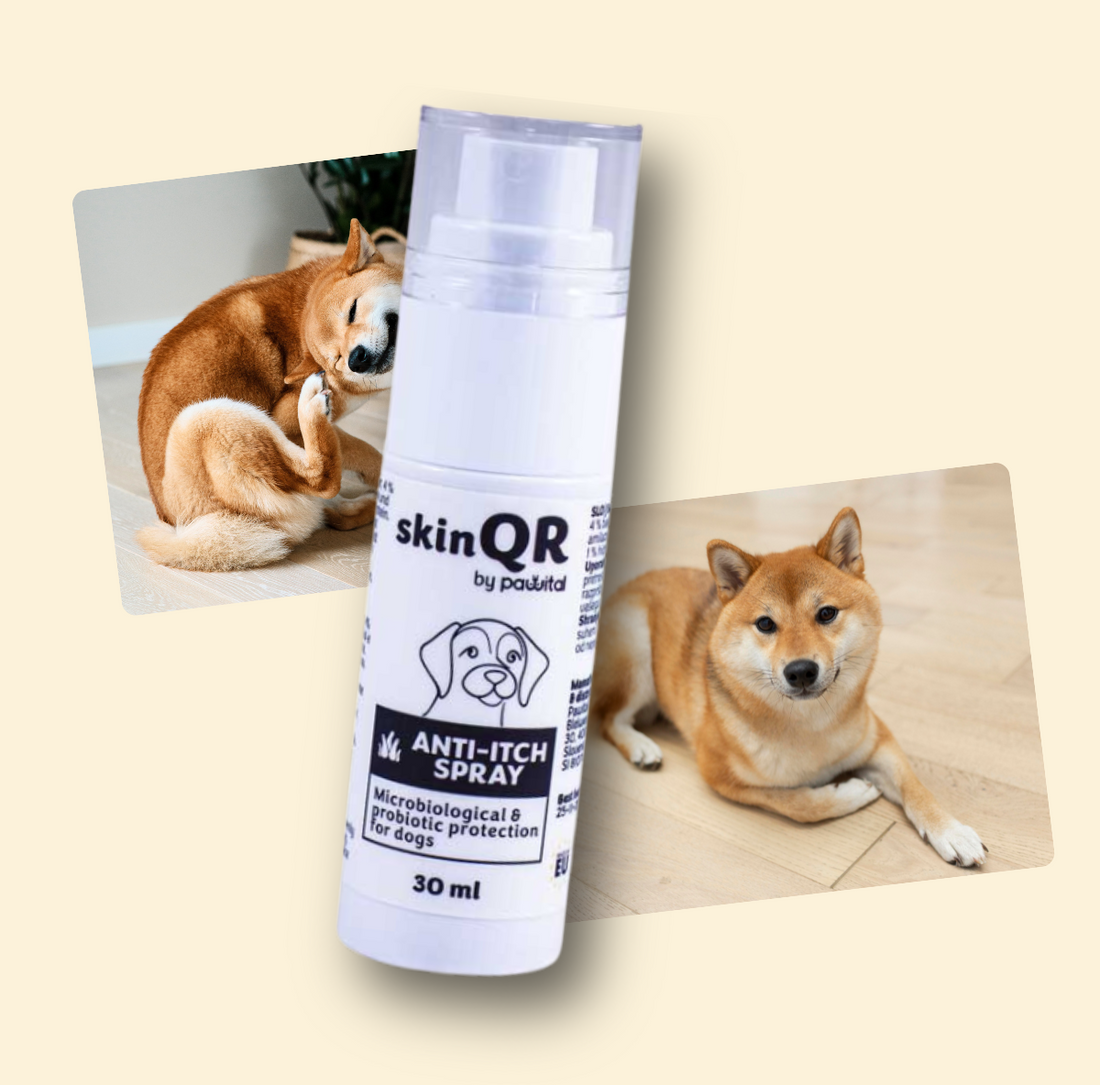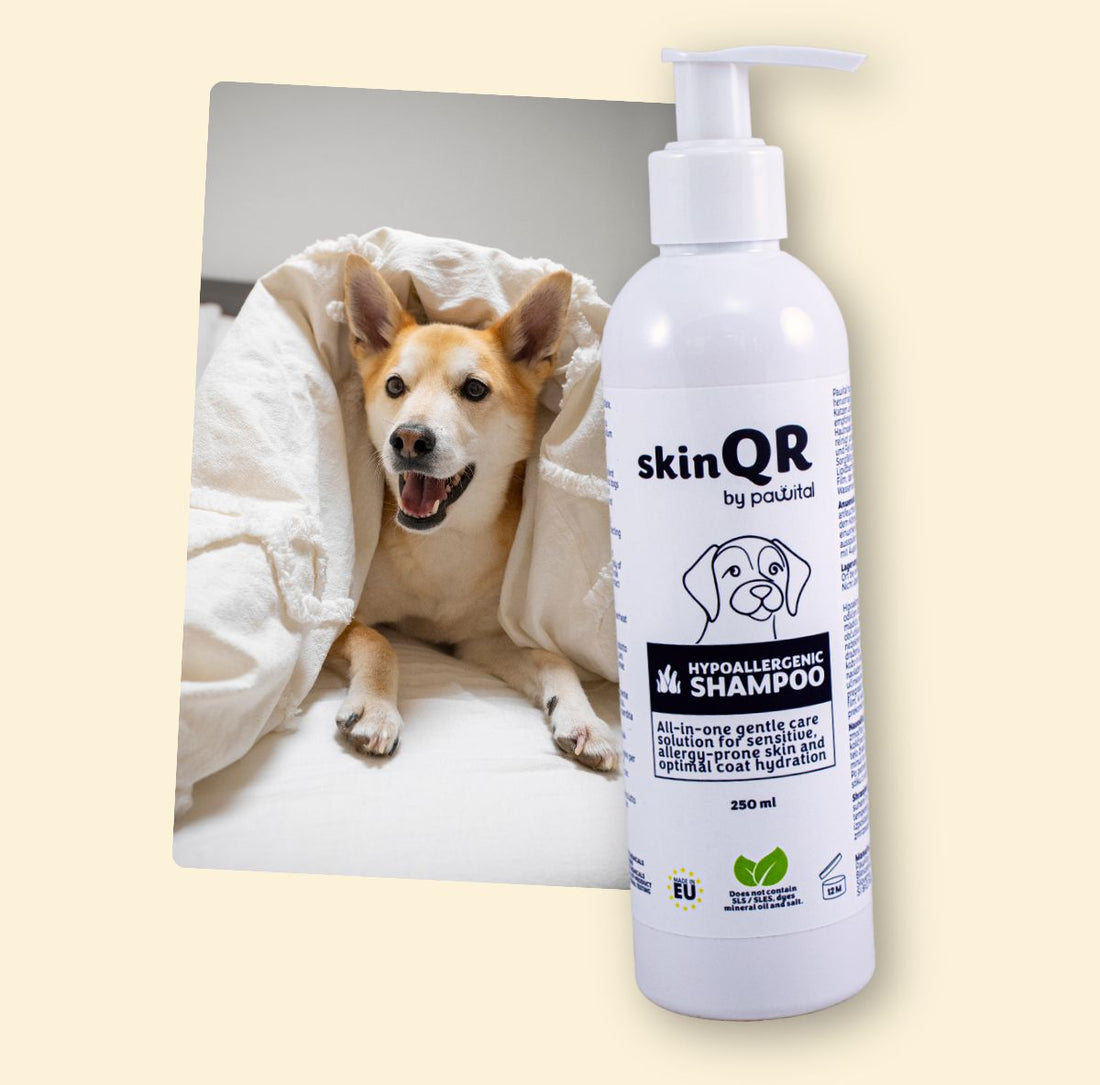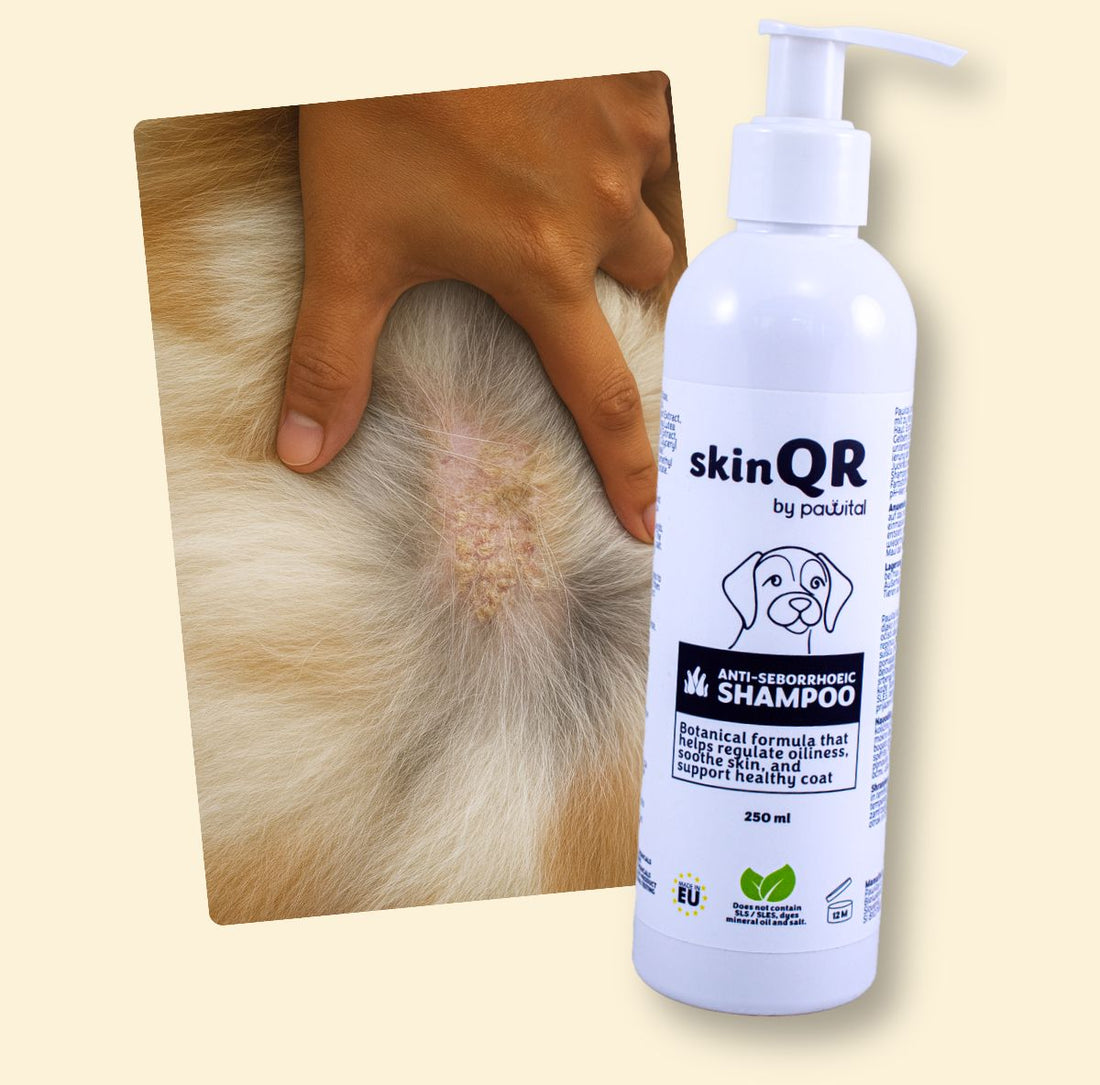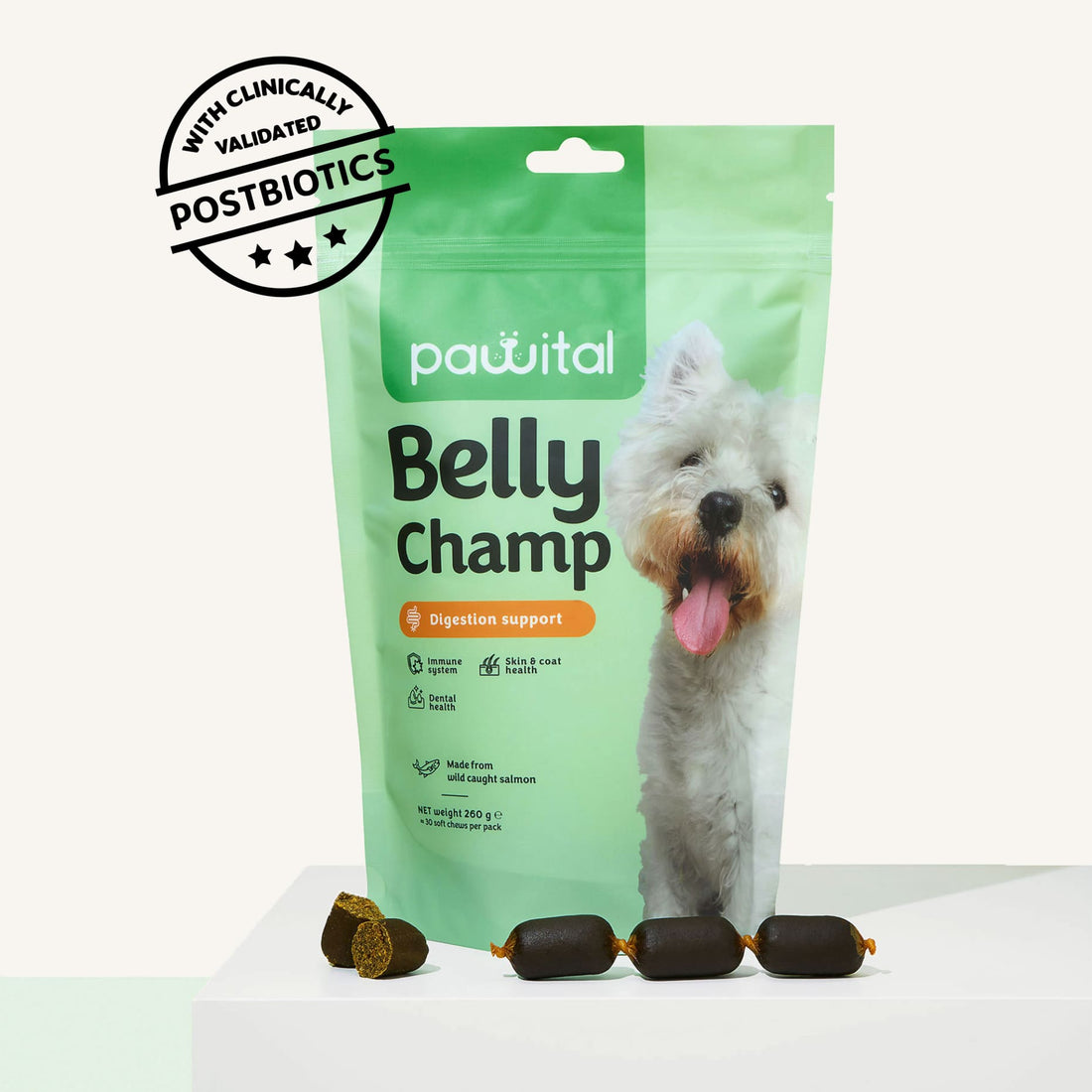The Gut-Skin-Immune Connection - How a Healthy Gut Can Help Defeat Common Dog Skin Issues
Healthy skin starts on the inside—particularly in the gut.
If your dog constantly battles rashes, itchiness, or recurring infections, the hidden culprit may be an imbalanced gut and an overtaxed immune system.
Let’s explore how gut health influences the skin and immune system, and is critical in common issues like Atopic Dermatitis, Malassezia and others.
The Gut-Skin-Immune Connection
Think of the gut as your dog’s “control center” for overall health.
Inside the digestive tract is a bustling ecosystem of bacteria (both good and bad), known as the microbiome. When the “good” microbes flourish, they help:
- Digest and absorb nutrients that keep skin, coat, and immune cells strong.
- Form a barrier to block harmful bacteria or toxins from entering the bloodstream.
- Communicate with the immune system to regulate inflammation and allergic responses.
However, if something disrupts this microbial balance—like poor diet, chronic stress, or overuse of antibiotics—the gut can become inflamed, making it harder for the immune system to function optimally.
This can lead to skin problems, because a weakened immune defense and ongoing inflammation allow infections and allergies to run rampant.
In short, a healthy gut microbiome is essential for a resilient immune system—and that resilience shows on the outside, in the form of healthy skin and a glossy coat.
Key Diseases Linked to Gut and Immune Health
Atopic Dermatitis (Allergic Dermatitis)
Atopic dermatitis is an inflammatory condition often triggered by environmental allergens (like pollen or dust mites). Dogs with atopy typically scratch, chew, or lick their paws and ears, and develop red or irritated skin.
How It Relates to Gut Health and Immunity:
- Many dogs with atopic dermatitis also have food sensitivities or a compromised gut, which can worsen inflammation.
- When the gut is unbalanced, the immune system tends to “overreact,” making allergic flares more frequent and severe.
Malassezia Dermatitis (Yeast Overgrowth)
Malassezia pachydermatis is a type of yeast that naturally exists on a dog’s skin. However, it can overgrow if the skin or immune system becomes compromised. Common signs include greasy, smelly skin and persistent itching—especially around the ears, paws, and skin folds.
How It Relates to Gut Health and Immunity:
- A weakened or stressed immune system (often due to poor gut health) has trouble keeping yeast populations in check.
- When gut inflammation or food intolerances overload the immune system, Malassezia can flourish on the skin.
Pyoderma (Bacterial Skin Infection)
Pyoderma is a bacterial infection, often caused by Staphylococcus pseudintermedius. It can produce red bumps, pustules, and scabs, leading to hair loss and constant scratching.
How It Relates to Gut Health and Immunity:
- Chronic or recurrent pyoderma often hints at an underlying immune weakness.
- When the gut’s balance is off, the dog’s overall immune defense can falter, making it easier for bacteria to invade and turn minor skin irritations into full-blown infections.
Demodicosis (Demodectic Mange)
Demodicosis occurs when Demodex mites—which most dogs naturally host in small numbers—multiply out of control. Signs include patchy hair loss, red scaly skin, and can worsen into widespread lesions if left untreated.
How It Relates to Gut Health and Immunity:
- Healthy adult dogs usually keep Demodex mites under control thanks to a robust immune system.
- Puppies or adult dogs with weak immunity (often linked to poor nutrition or chronic gut issues) are more susceptible.
- Improving gut integrity can bolster immune defenses, helping the dog’s body regulate mites naturally.
How Prebiotics, Probiotics and Postbiotics Help
Prebiotics
Prebiotics are non-digestible fibers or complex carbohydrates that “feed” beneficial bacteria in the gut. Examples include inulin, fructooligosaccharides (FOS), and certain dietary fibers found in foods like chicory root or pumpkin.
Why They Help:
- By nourishing friendly gut bacteria, prebiotics support a balanced microbiome.
- This healthy balance can reduce overall inflammation and keep the immune system from overreacting.
- A stable gut microbiome means fewer toxins leak through the intestinal lining, potentially reducing skin flare-ups.
Probiotics
Probiotics are live beneficial bacteria (such as Lactobacillus or Bifidobacterium strains) formulated into supplements or certain dog foods.
Why They Help:
- Adding these “good guys” helps restore microbial balance, especially if your dog has recently been on antibiotics or suffers from chronic gut imbalances.
- Probiotics strengthen the gut barrier, reducing systemic inflammation and the likelihood of skin eruptions.
- They also help regulate immune signals that can trigger allergic reactions or infections.
Postbiotics
Postbiotics are the beneficial byproducts (metabolites, enzymes, vitamins) produced by probiotics during fermentation. Examples include short-chain fatty acids (SCFAs) like butyrate.
Why They Help:
- These compounds can further soothe inflammation, support gut lining repair, and improve nutrient absorption.
- They also play an essential role in modulating the immune response, acting as an extra layer of defense against skin-irritating infections or overgrowths.
A Healthier Gut for Healthier Skin
When you support your dog’s gut with prebiotics, probiotics, and postbiotics, you empower the immune system to do its job more effectively - protecting against allergens, bacterial invaders, and other triggers that create skin havoc. A balanced gut sets the stage for a happier, itch-free, and more resilient pet.
See the Pawital gut health & immune system supplements that can help ...
-
Belly Biotics
 Belly Biotics
Belly Biotics- Regular price
-
€19,90 €79,90 - Regular price
-
€19,90 - Sale price
-
€19,90 €79,90
-
skinQR Anti-Itch Spray (30ml)
 skinQR Anti-Itch Spray (30ml)
skinQR Anti-Itch Spray (30ml)- Regular price
-
€16,90 €39,90 - Regular price
-
€16,90 - Sale price
-
€16,90 €39,90
-
skinQR Hypoallergenic Shampoo (250ml)
 skinQR Hypoallergenic Shampoo (250ml)
skinQR Hypoallergenic Shampoo (250ml)- Regular price
-
€9,90 €22,90 - Regular price
-
€9,90 - Sale price
-
€9,90 €22,90
-
skinQR Anti-Seborrhoeic Shampoo (250ml)
 skinQR Anti-Seborrhoeic Shampoo (250ml)
skinQR Anti-Seborrhoeic Shampoo (250ml)- Regular price
-
€9,90 €22,90 - Regular price
-
€9,90 - Sale price
-
€9,90 €22,90







